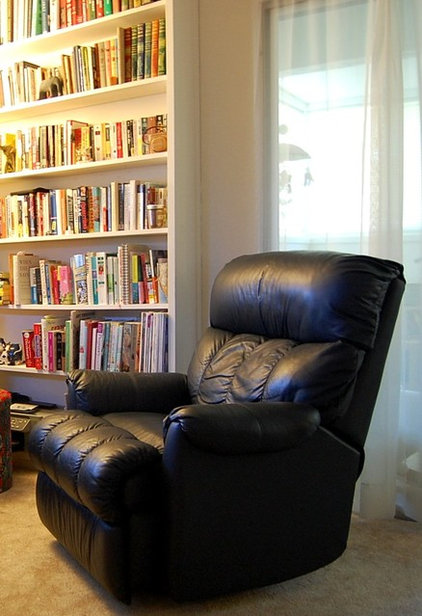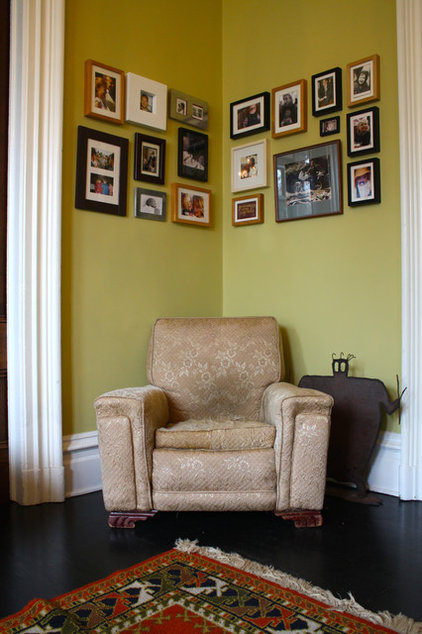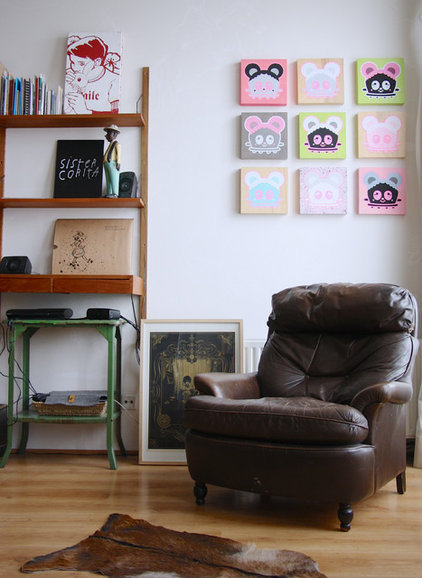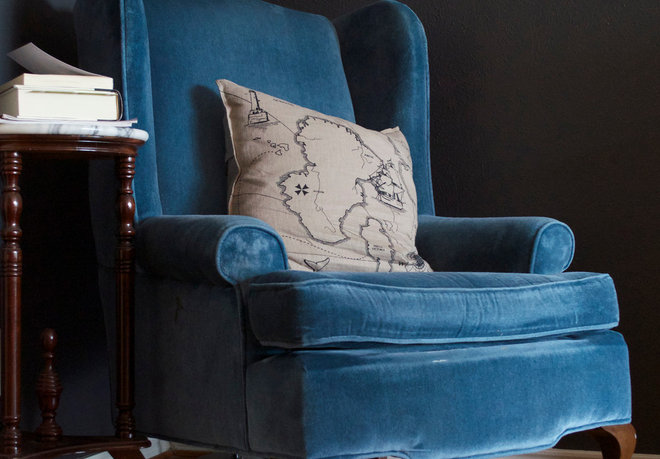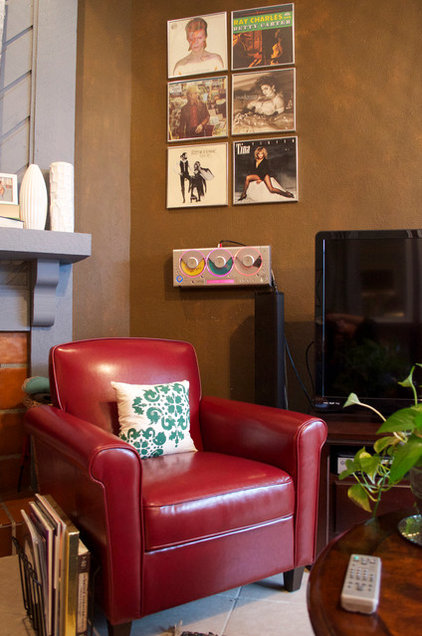The Beautiful Thing About Dad's Chair
My wife’s father had just dropped off the chair. It was a gift from his mother, my wife’s grandmother. I’m told that my wife’s grandfather had sat in this chair for many, many years before he died. I stared in awe at the thing. I finally had my first Dad Chair. And then a peculiar thing happened.
Neither my wife, son nor I had laid claim to the chair, but in my mind it was immediately obvious that it was mine. This was for Dad. Me.
I felt territorial and possessive. My mind raced with thoughts of me sitting in the chair drinking scotch and saying wise things, of reading thick leather-bound literary tomes and, of course, watching football games every Sunday. But we don’t even have a TV. And I hate scotch. And I read trashy detective novels and rarely say wise things! What gives?
Turns out, there are a lot of factors involved with my brutish behavior. “Generally, the Dad Chair is a protected base for the dominant male in a home,” says environmental psychologist Sally Augustin. By “generally,” Augustin is referring to the obvious fact that there are many different households, some without any males at all. My emotional behavior concerning this chair is really a culmination of biological as well as cultural influences.
And I do have many memories of my father’s claimed territory throughout multiple houses we lived in when I was growing up. He never really had a Dad Chair, but he certainly had his spot, marked by an indention in the sofa, where he would sit every night, his knees bent and his feet tucked up under himself, with a slight lean against the left armrest so he could reach his glass of wine on the side table. He and my mother moved to a new place in San Diego about a year ago, and sure enough, the sofa arrangement is the same, and his spot was reclaimed.
“I'm unsure how mine became mine, other than I'm the one who found it and dragged it inside,” he says. “I don't care if someone else sits in my chair, but honestly and for no spoken reason, nobody else does. My father has a chair in his house that no one else sits in, and as far as I know he also had made no verbal objections to others sitting in it, but no one does.”
There are no formal criteria for a Dad Chair, though we've previously offered some helpful suggestions for finding the perfect man chair. For Mather there’s just something intrinsically different about the old broken-in chair compared to the midcentury pieces found elsewhere in his house.
“It fits me,” he says. “It smells good. It's brown. Brown is good. In our house it's the cigar of chairs.” (Of note, he says, is the fact that his wife has her own chair, too. But for some reason, everyone sits in it.)
|
Most Dad Chairs, however, do have
a few things in common. You’ll notice that many have substantial backs.
From a deep, ancient biological perspective, this is so whoever’s
sitting in the chair doesn’t feel threatened about someone's sneaking up
behind them, says Augustin, who’s written about primordial behavior in terms of biophilic design.
|
There’s been research on how we tend to sit over and over again in the same seat in classrooms and in the same position, which has its benefits. “It seems we get psychological support from being in the same position on multiple occasions,” Augustin says. This all runs in conjunction with needing one’s own space and territory in order to regulate emotions.
“Territories are extremely important to us psychologically. We all need a place that we control and can return to as well as personalize — it helps keep our stress levels down,” Augustin says.
Right. So stay out of Dad’s chair.
